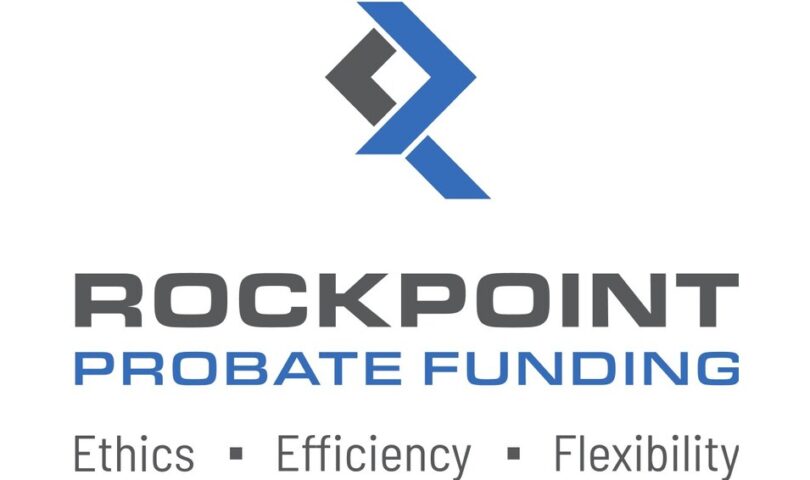EL SEGUNDO, Calif., March 31, 2025 /PRNewswire/ — Rockpoint Probate Funding has unveiled new commentary spotlighting the growing number of Americans who pass away without a valid will—also known as dying “intestate”—and the financial and emotional burdens this situation can place on surviving family members. Drawing on data from Caring.com’s 2023 Wills and Estate Planning Study, which indicates that only 34% of U.S. adults have a will in place, Rockpoint underscores how intestacy frequently leads to prolonged probate proceedings, amplified stress, and unexpected legal hurdles for heirs.
Intestacy on the Rise, Complicating Probate Proceedings
While probate is often associated with verifying a will and distributing assets accordingly, intestate estates must adhere to state-specific laws that strictly govern how property is divided. These statutes can run counter to family expectations, leaving spouses and children vulnerable to unfavorable outcomes:
- State-Dependent Outcomes
Each state follows its own formula for distributing assets in the absence of a will. Surviving spouses and children may receive different proportions of the estate depending on jurisdiction, sometimes creating shock or dismay when local laws override a decedent’s presumed wishes. - Extended Court Oversight
Without a will to clarify the decedent’s intentions, the probate court may require more detailed asset inventories, valuations, and notice filings, increasing both the timeframe and cost of estate administration. - Higher Likelihood of Disputes
Unclear directives about sentimental possessions or real estate can fuel disagreements among surviving relatives—disputes that often prolong the legal process and erode the estate’s remaining value.
Financial and Emotional Strain for Surviving Families
The study, along with findings from the National Center for State Courts, suggests that intestate estates frequently end up with longer court dockets and higher administrative fees, exerting significant financial and emotional pressure on beneficiaries:
- Prolonged Uncertainty
Surviving family members may struggle with everyday expenses, like mortgage payments or medical bills, while waiting for court authorization to access or sell assets. - Emotional Fallout of Unplanned Estates
Dying intestate can compound grief with feelings of regret or guilt, particularly if relatives sense the decedent’s unexpressed wishes are not being honored. - Potential Tax Implications
In certain states, inheritance or estate taxes may apply differently when no will is present. Families unaware of these obligations risk incurring late fees or penalties, further reducing the net estate.
How Lack of Estate Planning Drives Conflict
Family disagreements often escalate when the decedent has not left explicit instructions:
- Asset Distribution Disputes
Whether it’s real property, treasured heirlooms, or bank accounts, a lack of documentation can spark competing claims among siblings and extended family members. - Executor Challenges
In intestate cases, courts typically appoint an administrator—often a surviving spouse or adult child—who may feel unprepared for the legal responsibilities and emotional weight of managing competing interests. - Delayed Access to Vital Funds
Even if beneficiaries share a broad consensus, strict procedural requirements can stall the release of essential financial resources for months, sometimes over a year.
Rockpoint’s Non-Recourse Funding: A Safety Net During Probate
Rockpoint Probate Funding helps heirs navigate these uncertainties by offering non-recourse inheritance advances, designed to:
- Provide Immediate Capital
Beneficiaries can secure funds to cover pressing expenses—such as funeral costs, mortgage payments, or legal fees—without waiting for the official completion of probate. - Eliminate Personal Liability
In a non-recourse arrangement, heirs are not personally responsible if the estate’s eventual distribution falls short of initial estimates, reducing risk at a financially and emotionally vulnerable time.
“We see families grappling with anxiety and real financial strain when no will is in place,” notes a spokesperson for Rockpoint. “By offering timely, risk-mitigated funding, we help beneficiaries avoid compounding debts and focus on resolving probate matters in a way that honors their loved one’s memory.”
Promoting Clarity Through Proactive Measures
Although Rockpoint assists in bridging liquidity gaps, experts uniformly recommend preventative steps to minimize probate complications:
- Draft a Will or Trust: Creating a legally valid will is the most direct way to clarify final wishes and prevent confusion.
- Keep Asset Lists Updated: An organized record of bank accounts, property deeds, and insurance policies can streamline the court’s review, especially critical in intestate cases.
- Seek Professional Advice: Estate attorneys and financial planners can clarify state-specific laws, advise on tax implications, and help families structure their affairs to minimize court delays.
About Rockpoint Probate Funding
Rockpoint Probate Funding is dedicated to assisting individuals and families navigating complicated probate procedures by offering non-recourse inheritance advances. By collaborating with legal and financial professionals, Rockpoint seeks to bring clarity, reassurance, and financial relief to beneficiaries—particularly those facing protracted or intestate probate. For more information, please visit rockpointprobate.com.
Media Contact: Jonathan Urrutia
Marketing Manager
Rockpoint Legal Funding
(424) 377-7238
[email protected]
SOURCE Rockpoint Probate Funding













